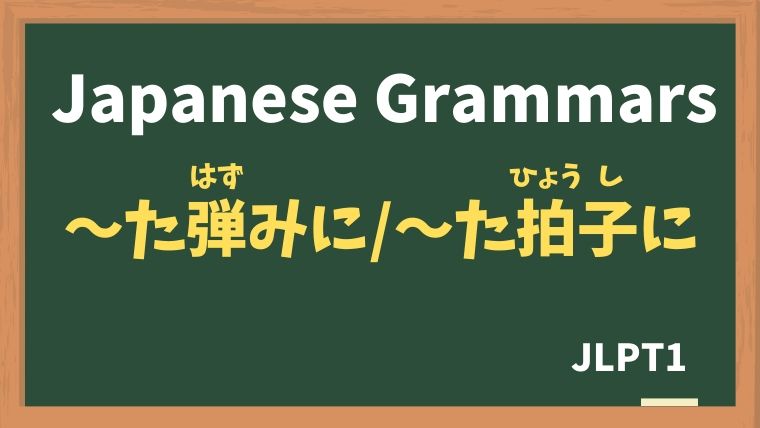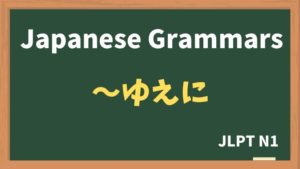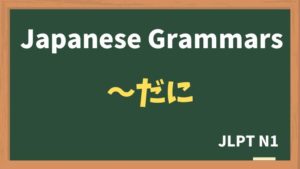
Explanation:〜た弾みに / 〜た拍子に
fa-check-circleMeaning
"〜したことで、うっかり・・・してしまった"
Used to indicate that something happened as a result of a certain trigger or occasion. They imply that an action or event occurred due to a specific moment, often unexpectedly or incidentally.
fa-check-circleForm
V(ta form)+ 弾みに / 弾みで
V(ta form)+ 拍子に / 拍子で
fa-check-circlePoints
- Cause and Effect: Both expressions suggest that an action was triggered by a preceding event or circumstance.
- Unexpectedness: They often carry a sense of something occurring unexpectedly as a result of the situation mentioned.
- Similar Usage: "弾み" (hazumi) refers to a bounce or momentum, while "拍子" (hyouji) refers to a timing or rhythm; both can be used interchangeably in many contexts.
fa-check-circleJLPT Level
N1
Sample sentenes
誰かに押された弾みで、靴が脱げてしまった。
By being pushed by someone, I ended up losing my shoe.
転んだ弾みで、頭をぶつけてしまった。
By falling, I ended up hitting my head.
滑った弾みに、足首を捻挫してしまった。
By slipping, I ended up spraining my ankle.
人とぶつかった拍子で、持っていたスマホを落としてしまった。
By bumping into someone, I ended up dropping the smartphone I was holding.
Vocabulary
| Japanese |
English | |
| 足首 | あしくび | ankle |
| 捻挫 | ねんざ | sprain |






